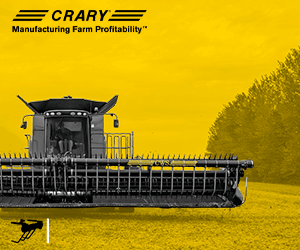Farm incorporation
IS IT RIGHT FOR YOU?
winter is often referred to as the planning season for many Ontario farms. Seed is purchased, fertilizer is ordered, taxes are filed and business decisions are considered. Business structures are currently a common topic among farm owners and industry professionals, specifically whether to incorporate a farm or not.
Incorporation is becoming increasingly popular amongst Ontario farm businesses as farms become larger and corporate tax rates continue to fall. Incorporating a farm business can be very appealing – offering advantages like tax deferral, faster debt repayment and maximizing personal tax credits – but the corporate farm business structure can be very complex and doesn’t always make sense for all farms.
“There are so many variables to consider when looking at incorporating a farm,” says Rob Gamble, former tax specialist with the Ontario Ministry of Agriculture, Food and Rural Affairs. “The general rule of thumb is to decide if the business is profitable enough to benefit from a lower corporate tax rate.”
While tax incentives are often the reason that draws farmers to consider incorporation, they shouldn’t be the only reason to incorporate, Gamble warns. Many of the tax advantages from incorporation are from tax deferral, but farmers need to remember that at some point in the future the corporation tax will have to be paid when the money is removed from the business. This means the longer the deferral, the greater the advantage.
The greatest advantage of incorporation and tax deferral can be realized when farm business owners have a long-term plan. Gamble points out that incorporation doesn’t make sense for those who will only be in the business for five years. Incorporation can also be useful in succession planning, since the farm will likely be in business for a number of years and shares can often be transferred easier than whole assets.
the numbers count
A general rule of thumb for deciding whether or not to incorporate is income. Tax advantages merit investigation when a combination of farm and non-farm income reaches approximately $75,000 or more. “Clients often start seriously inquiring about incorporation when their income levels reach $75,000 or $80,000,” says Tom Blonde, Chartered Accountant with Collins Barrow, specializing in agricultural accounting. “And at an income level greater than $75,000, incorporation starts to make sense.”
At this level, the farm income is likely greater than what is needed for family living expenses, meaning income can be left in the corporation and taxed at a lower corporate rate.
Capital gains exemption, flexibility of the business structure and limiting liability – legal and financial – are other advantages of incorporating a farm business. While attractive, these aspects should all be carefully evaluated and professionals should be consulted before deciding to incorporate.
get the right advice
“The first step to deciding whether or not incorporation is the right fit for your farm is to talk to your peers,” says Blonde. Talking to other farm owners before consulting professionals can help farmers get a feel for the incorporation process and what’s involved. The next step is to organize your own information, like personal tax returns and income statements, and present them to an accountant or lawyer for advice. “Open up all your books,” says Blonde, who emphasizes the more information professionals have to work with, the better advice and recommendations they can make.
Blonde points out that deciding on the right farm business structure is just one of many planning decisions farmers make for their business. He says farm owners also need to know which direction they want their farm to take – expand, sell, pass on to the next generation, etc. – because those plans are important factors in any farm business decision, not just incorporation.
Incorporations are significantly more complex than sole proprietorships or business partnerships. They require a higher standard of record keeping and more professional advice and services. These complexities can often add up to additional costs like accounting and legal fees; but Blonde encourages farm owners to look at the big picture, not just the immediate costs. “Farmers need to balance the additional costs with potential savings, like tax breaks,” he says.
Whether farmers have decided to incorporate, or are still making the decision, the additional complexities of a corporation mean farm owners will work more closely with professionals, like their accountants, lawyers, lenders, insurance companies and suppliers. “You need to trust they know what they’re doing and take the time to work through the decision with you before you take your business to the next step of incorporation,” says Blonde, who emphasizes the importance of a good working relationship between farm owners and the professionals they rely on. “Incorporating a farm is very different than incorporation in other sectors, making it essential that the professionals farmers work with have experience in the farming sector and an agricultural background.”
Incorporation is an important decision that encompasses all aspects of a farm business. Making the right decision – whether to incorporate or not – can take a considerable amount of time and resources, but it is well worth the investment. •








